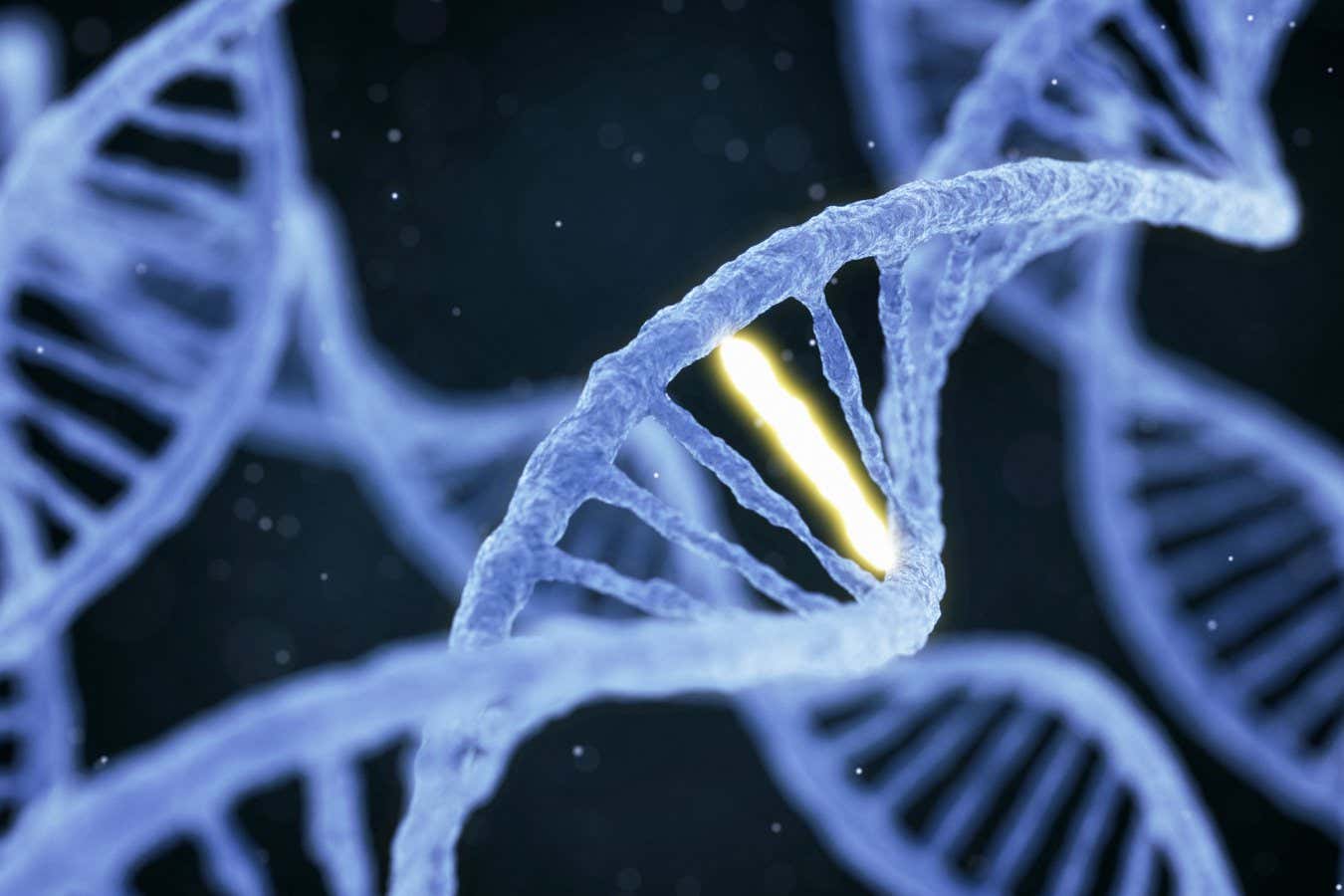We know that genetic factors play the largest role in the risk of developing schizophrenia, but few of the genes involved have been identified. Now researchers have found relevant mutations that occur in embryos
By Carissa Wong
6 July 2023
Non-inherited genetic mutations may play a role in schizophrenia
Shutterstock/Konstantin Faraktinov
Rare genetic mutations that occur during the first few days of embryo development may increase the risk of developing schizophrenia in later life. The findings could help reveal new treatments.
Around 1 in 300 people have schizophrenia, with symptoms including hallucinations, muddled speech and a loss of interest in everyday activities. It is widely accepted that genetic factors play the largest role in whether someone develops the condition, with environmental factors such as low birth weight or the use of psychoactive drugs only having a minor influence. Despite this, researchers have only pinned down around a dozen of the genetic variants involved.
Now, Christopher Walsh at Boston Children’s Hospital in Massachusetts and his colleagues have found evidence that non-inherited, or somatic, mutations – those that occur by chance during embryo development – may contribute to schizophrenia risk later in life. All previous mutations linked to the condition are ones passed down from the parents.
Advertisement
The researchers analysed genetic data previously extracted from blood samples from more than 12,800 adults with schizophrenia and over 11,600 people without the condition.
They found that part of a gene called NRXN1 had been deleted in six people with schizophrenia, but not in people without the condition. As the mutation was present in between 14 and 43 per cent of blood cells in these six individuals, it must have occurred in a cell during the first few days of embryo development before propagating through descendants of that cell, says Walsh. In contrast, inherited mutations are generally present in every cell of the body.
“Based on previous work, we know mutations like this that are detected in the blood probably affect a similar proportion of other cell types in the body, including the brain, where schizophrenia takes hold,” says Walsh. NRXN1 is important for learning because it encodes for a protein that regulates the number and density of connections between nerve cells, or neurons, in the brain, he says.
